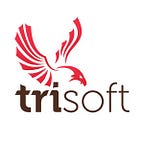Using Personality Tests to Create a Cohesive Team
By TRISOFT team
A company leader’s role is to make the corporate culture as positive and efficient as possible. And this can only be achieved if all members work together well, cooperate and head toward a common goal by employing mutual tactics and ideas.
Each employee must be perfectly suited for the role he is undertaking in the organization as a whole, but also thoroughly adapted to the environment and the professional team that he is part of. This matching of people can be done not only based on skills and talents, but primarily on personality traits — if a person cannot collaborate on certain projects that involve several departments, it doesn’t really matter that he is very capable and experienced in his task. Knowing what works well for every employee will help the manager unify the team and thus ensure the general success of the business.
The role of the tests
Perhaps introverted people will much rather work by themselves, in independent positions, while extroverts will become depressed and frustrated if forced to work alone, in an office, for 8 hours a day. By conducting personality assessments and afterwards analyzing the results, it will become clear in what way people can be brought together within the same company.
Personality tests are not only those applied by a psychologist during therapy, but rather they are tailored to any environment they are needed in — professional personality tests will focus on how people might react in certain situations that inevitably arise in an office, how they would respond to a hostile coworker or if their activity is affected by things happening at home or in the professional environment. Some people can compartmentalize extremely well, while others will carry their troubles into every aspect of their daily lives. Moreover, there are certain personalities that simply cannot get along. Such clashes will inevitably lead to delays in deadlines, stalled projects, workplace tension or even open, violent conflicts. In order to make sure that this does not happen, the office and the activity must be organized so that these contradictory personalities have as little contact with each other as possible, and when absolutely necessary, only in controlled environments.
The science behind
Tests used to determine employees’ personalities must be science-based, and the top six currently used by corporations are the following:
· the DiSC Assessment — a personal assessment tool used to improve work productivity, teamwork, leadership, sales, and communication, by measuring one’s personality and behavioral style, according to four factors: D (dominance), I (influence), S (steadiness), and C (conscientiousness);
· the Myers-Briggs Type Indicator — a self-report inventory designed to identify a person’s personality type, strengths and preferences, grouping people into 16 typologies, depending on what they prefer: People and things (Extraversion or “E”), ideas and information (Introversion or “I”), facts and reality (Sensing or “S”), or possibilities and potential (Intuition or “N”);
· the Predictive Index — which measures behavioral drives (Dominance, Extraversion, Patience, and Formality), as well as cognitive ability, thus helping business leaders to understand the needs of a specific role, team, project or business strategy, to collect candidate or employee “data” and to use that data to make more informed and objective decisions;
· the Five-Factor Model of Personality (FFM) — which identifies a person’s openness to experience, conscientiousness, extroversion, agreeableness and neuroticism (OCEAN), thus identifying who is likely to cooperate with team decisions, who is more competitive and rebellious, who is talkative and self-confident, who is highly organized, who has strong impulse control;
· the Occupational Interest Inventory — a career guidance tool measuring 12 dimensions of occupational interest, grouped into 6 general categories named as RIASEC — Realistic, Investigative, Artistic, Social, Enterprising and Conventional, which compare the candidate`s profile with 400+ job clusters and 30+ industries, to arrive at the list of most suitable industries and occupations for the candidate; and
· situational judgment tests — which generally measure a mixture of style and ability, determining behavioral tendencies and assessing how an individual will behave in a certain situation, as well as knowledge instruction, which evaluates the effectiveness of possible responses.
What comes after the tests
There are no right or wrong answers to personality tests, therefore the leader should encourage all employees to respond truthfully, since in the end, it will be beneficial for all parties involved.
After obtaining the results, the manager must identify patterns and similarities between employees, so that they may congregate them according to their abilities and interests. Effective team building is based on understanding people and cultivating a culture that enables them to avoid disputes. Grouping employees who will surely collaborate well is far better than throwing people together and hoping that things will work out.
Compatible
At TRISOFT, we believe taking compatibility into consideration actually helps reduce personality clashes that lead to delays in work, as well as fill all of the unique roles that projects require. By taking the time to create teams based on the members’ distinct personalities, we can be more confident in our employees and their work.
